Section 1
THE NATURAL ARISTOCRACY
|
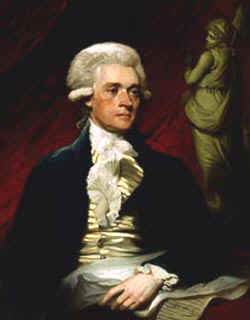 |
|
|
|
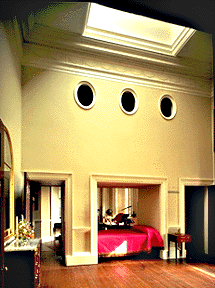 |
Read:
Look at:
Recommended:
|
Section 3
THE FOUNDERS' REPUBLIC:
Roman Virtue and Agrarian Visions
|
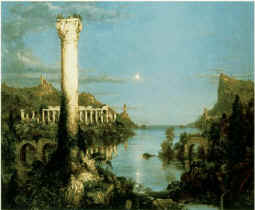
Thomas Cole's
The Course of Empire
(click to see) |
Read:
|
Section 4
THE PEOPLE'S REPUBLIC
|
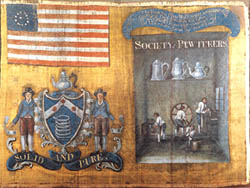
|
 Jeffrey
L. Pasley, "The
Cheese and the Words: Popular Political Culture and Participatory
Democracy in the Early American Republic" Jeffrey
L. Pasley, "The
Cheese and the Words: Popular Political Culture and Participatory
Democracy in the Early American Republic"
 Alfred
F. Young, "George Robert Twelves Hewes (1742-1840): A Boston Shoemaker and the Memory of the American Revolution" Alfred
F. Young, "George Robert Twelves Hewes (1742-1840): A Boston Shoemaker and the Memory of the American Revolution"
 [GRADUATE STUDENTS]: Daniel
Vickers, "Competency and Competition: Economic Culture in Early
America"
[GRADUATE STUDENTS]: Daniel
Vickers, "Competency and Competition: Economic Culture in Early
America"
|
Section 5
"A perpetual exercise of the most boisterous passions":
JEFFERSON, SLAVERY, AND THE EARLY REPUBLIC
|
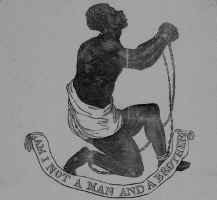
|
Thomas Jefferson, Selections
on race and slavery from Notes on Virginia and letters |
Section 6
HAMILTON'S FINANCIAL SYSTEM AND THE RISE OF OPPOSITION
|
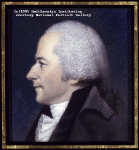
PowerPoint presentation on the
"Residence Issue and the
Compromise of 1790"
(works best
with Internet Explorer, a non-Mac computer, and a non-dialup
connection) |
Read:
 Jefferson's
attack on the constitutionality of the Bank of the United States Jefferson's
attack on the constitutionality of the Bank of the United States
 Excerpt
from Hamilton's defense of the constitutionality of the B.U.S. Excerpt
from Hamilton's defense of the constitutionality of the B.U.S.
or, full
version
 Excerpt
from Hamilton's Report on Manufactures Excerpt
from Hamilton's Report on Manufactures
 Jefferson's
notes on the origins of his opposition to Hamilton Jefferson's
notes on the origins of his opposition to Hamilton
 James Madison,
Essays for
the National Gazette [downgraded to recommended] James Madison,
Essays for
the National Gazette [downgraded to recommended]
 Philip
Freneau, "Sentiments
of a Republican" Philip
Freneau, "Sentiments
of a Republican"
 Philip
Freneau, "Rules for changing a limited republican government into an unlimited hereditary one"
(National Gazette, 1792) Philip
Freneau, "Rules for changing a limited republican government into an unlimited hereditary one"
(National Gazette, 1792)
 Jeffrey
L. Pasley, "'A Journeyman, Either in Law or Politics': John Beckley
and the Social Origins of Political Campaigning," Journal of the
Early Republic 16 (1996): 531-569 (JSTOR -- link will only work on
campus) Jeffrey
L. Pasley, "'A Journeyman, Either in Law or Politics': John Beckley
and the Social Origins of Political Campaigning," Journal of the
Early Republic 16 (1996): 531-569 (JSTOR -- link will only work on
campus)
 Rufus
Wilmot Griswold, The Republican Court, "The
Triumphal Progress" and "The
Inauguration" Rufus
Wilmot Griswold, The Republican Court, "The
Triumphal Progress" and "The
Inauguration" |
Section 7
THE UNITED STATES AND THE FRENCH REVOLUTIONARY CRISIS
|
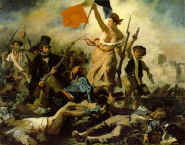 |
 Jefferson
on Revolution, letters to: William
S. Smith and Abigail
Adams (son-in-law & wife of John Adams), 1787; William
Short, 1793 Jefferson
on Revolution, letters to: William
S. Smith and Abigail
Adams (son-in-law & wife of John Adams), 1787; William
Short, 1793
 Jefferson
on the controversy with France: on U.S.
obligations to France; first
impressions of "Citizen" Genet Jefferson
on the controversy with France: on U.S.
obligations to France; first
impressions of "Citizen" Genet
 Proclamation
of Neutrality Proclamation
of Neutrality
 Jefferson
on his decision to resign Jefferson
on his decision to resign
RECOMMENDED [JSTOR]: Albrecht
Koschnik, "The Democratic Societies of Philadelphia and the Limits of
the American Public Sphere, Circa 1793-1795," William and Mary
Quarterly 3d ser., 58 (2001): 615-36; and Eugene R Sheridan, "The Recall
of Edmond Charles Genet: A Study in Transatlantic Politics and
Diplomacy," Diplomatic History 18 (1994): 463-488.
FOR REFERENCE:
 Documents
on the 1778 Treaty with France Documents
on the 1778 Treaty with France
 Declaration
of the Rights of Man (France, 1789) Declaration
of the Rights of Man (France, 1789)
 Revolutionary
Calendar Revolutionary
Calendar
|
Section
8
YEAR OF THE GUN: 1794 |
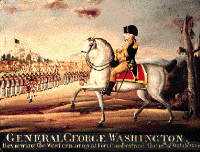 |
 Washington's
Proclamation on the Whiskey Rebellion Washington's
Proclamation on the Whiskey Rebellion
 Washington's
Annual Message 1794 & Jefferson's
response Washington's
Annual Message 1794 & Jefferson's
response
|
Section 9
THE JAY TREATY AND THE FIRST PARTISAN PRESIDENTIAL ELECTION |
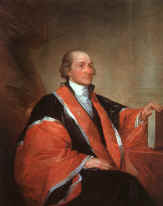
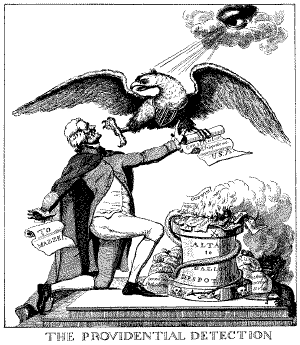 |
 Jefferson's
letter to Mazzei Jefferson's
letter to Mazzei
 Washington's
Farewell Address Washington's
Farewell Address
 Fisher Ames, Speech
defending the Jay Treaty, from Works of Fisher Ames (speech
begins p. 37,
key section pp. 64-71) Fisher Ames, Speech
defending the Jay Treaty, from Works of Fisher Ames (speech
begins p. 37,
key section pp. 64-71)
 Pennsylvania
campaign circulars: w/
Paine quote; w/ Adams
quotes Pennsylvania
campaign circulars: w/
Paine quote; w/ Adams
quotes
RECOMMENDED [JSTOR]: Simon P.
Newman, "Principles or Men? George Washington and the Political
Culture of National Leadership, 1776-1801," Journal of the Early
Republic 12 (1992): 477-507; OR Alexander DeConde, "Washington's
Farewell, the French Alliance, and the Election of 1796," Mississippi
Valley Historical Review 43 (1957): 641-658
FOR REFERENCE:
 Jay
Treaty and related documents Jay
Treaty and related documents |
| |
|
|
| |
|
|

![]()